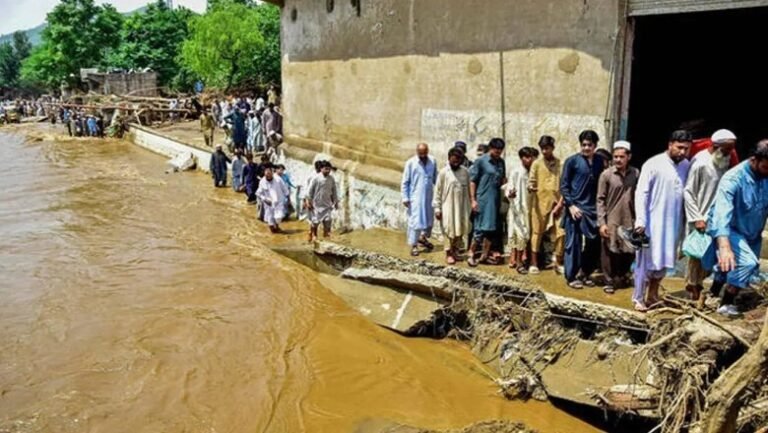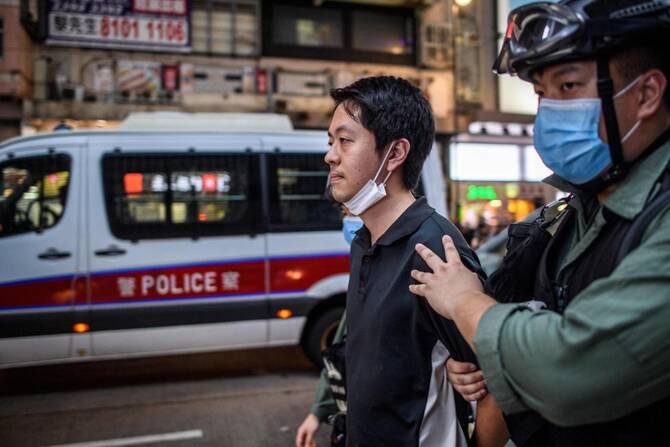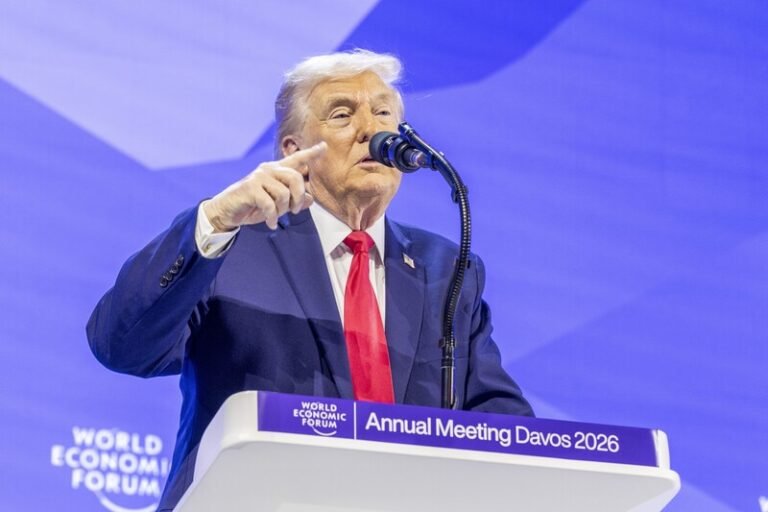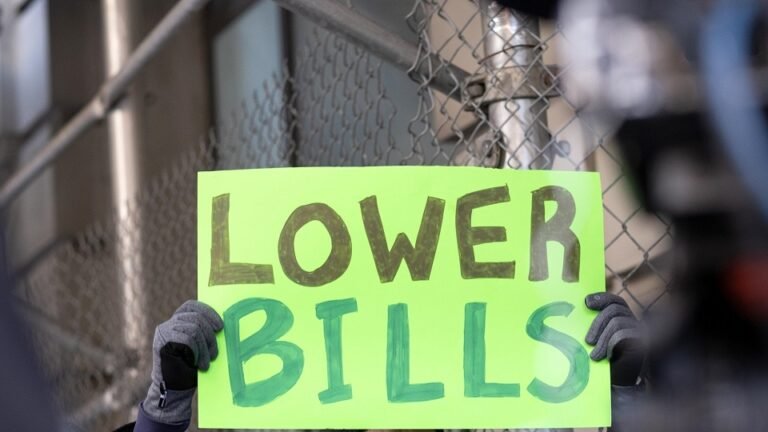Air France said it has suspended flying over the South Asian country until further notice because of the “recent evolution of tensions between India and Pakistan” in a statement to CNN.
The airline is “adapting its flight schedule and flight plans to and from certain destinations,” the French flag carrier said, adding some routes will require longer flight times, it said.
Germany’s flag carrier Lufthansa also confirmed to Reuters that it was “avoiding Pakistani airspace until further notice.”
The travel disruptions come two weeks after militants massacred 26 civilians, mostly tourists, in the mountainous town of Pahalgam in Indian-administered Kashmir, a rampage that has sparked widespread outrage.
India was quick to blame Pakistan, which it has long accused of harboring militant groups. Pakistan denied involvement, and tensions have mounted since with a series of escalatory tit-for-tat moves between the two neighbors.
Both sides had already closed their airspaces to each other’s aircraft since the attack, but the increased tensions are now impacting other international airlines and will likely cost them as they burn extra fuel taking longer routes.
The disruptions could compound expenses for airlines, which have already had to be cautious about other key flashpoints in recent years, including the Middle East and areas close to the Ukraine-Russia front lines.
Flight-tracking data showed some flights of British Airways, Swiss International Air Lines and Emirates traveling over the Arabian Sea and then turning north toward Delhi in order to avoid Pakistani airspace, Reuters reported.
Kashmir, one of the world’s most dangerous flashpoints, is controlled in part by India and Pakistan but both countries claim it in its entirety. Since their independence from Britain nearly 80 years ago, the two nuclear-armed rivals have fought three wars over the mountainous territory that is now divided by a de-facto border called the Line of Control (LOC).
In the wake of the tourist massacre, India and Pakistan have been flexing their military muscle, putting both countries on edge.
Pakistan on Monday carried out a second missile test in three days, Reuters reported.
The Pakistani army said the missile tested was a Fatah series surface-to-surface missile with a range of 120 kilometers (75 miles), according to Reuters. It came two days after the successful launch of a surface-to-surface ballistic missile.
India has also ordered all its states and union territories to carry out mock security drills on Wednesday – a rare order from the home ministry not seen in decades, covering 244 areas categorized as “civil defense districts.”
It comes days after India’s navy said it had carried out test missile strikes to “revalidate and demonstrate readiness of platforms, systems and crew for long-range precision offensive strike.”
Tensions have ramped up despite the United States and China urging restraint.
The United Nations Secretary-General, Antonio Guterres, on Monday also urged both India and Pakistan to “avoid a military confrontation that could easily spin out of control.”
“Make no mistake: A military solution is no solution,” he added.
The UN Security Council held a closed-door meeting on Monday, according to a statement from Pakistan’s foreign ministry.
Water treaty
Water has become a key flashpoint in the ongoing tensions between India and Pakistan.
India suspended its involvement in the Indus Water Treaty days after the militant attack, threatening a pact that has been in place since 1960.
The treaty governs the sharing of water from the enormous Indus River system, a vital resource supporting hundreds of millions of livelihoods across Pakistan and northern India. The Indus originates in Tibet and flows through China and Indian-controlled Kashmir before reaching Pakistan.
Indian media, citing a government source, earlier reported that New Delhi had cut water flowing through the Baglihar dam in Indian-administered Kashmir, stopping water flowing into Pakistan via the Chenab river.
In response to those reports, a Pakistani government source on Tuesday told CNN that authorities “are aware that India has started work on hydro projects” since suspending the treaty.
“Pakistan has also protested in this regard, but India has started work without giving any response,” the sources said. CNN has contacted India for a response.
Economic impact
The military stand-off could threaten Pakistan’s economy, which has already suffered major challenges in recent years.
“Sustained escalation in tensions with India would likely weigh on Pakistan’s growth and hamper the government’s ongoing fiscal consolidation, setting back Pakistan’s progress in achieving macroeconomic stability,” a report from Moody’s said, according to Reuters.
Pakistan recently secured a $7 billion bailout from the International Monetary Fund after years of negotiations, giving the country some much-needed respite following years of economic turmoil as a result of political instability and climate catastrophes.
“A persistent increase in tensions could also impair Pakistan’s access to external financing and pressure its foreign-exchange reserves,” the Moody’s report said, according to Reuters.
India, on the other hand, is not expected to see major disruptions to its economy since it has “minimal economic relations” with Pakistan, Moody’s added.
Cultural exchanges stopped
As military tensions ramp up, cultural exchanges between New Delhi and Islamabad have also come to a halt.
India has blocked the social media handles of Pakistani celebrities, and a much-anticipated Indian film featuring a Pakistani actor is now not expected to release in the country.
Fawad Khan, an actor, singer, and producer with a huge following in India, announced his Bollywood comeback in April, sending fans into a frenzy. But his upcoming movie, “Abir Gulaal,” will not hit cinemas on May 9 as previously planned, according to local media reports.
Khan’s impending return to Bollywood was hailed as heartening news by Indian critics and fans alike.
The actor, who has appeared in Indian films in the past, disappeared from Indian screens in 2016 after dozens of Indian soldiers were killed in a militant attack in Indian-administered Kashmir that was followed by deadly clashes along the contested border.
India blamed Pakistan for that attack, which Islamabad denied, and as tensions escalated between the two nuclear-armed neighbors, the Indian Motion Picture Producers Association imposed a de facto ban on Pakistani talent.
CNN’s Vedika Sud, Sophia Saifi, Max Saltman, Esha Mitra, Aishwarya S. Iyer, and Azaz Syed contributed reporting














